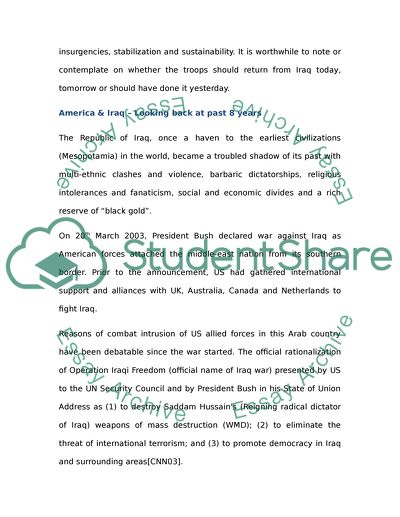Cite this document
(“When should we bring our troops home from Iraq Essay”, n.d.)
Retrieved from https://studentshare.org/history/1416647-when-should-we-bring-our-troops-home-from-iraq
Retrieved from https://studentshare.org/history/1416647-when-should-we-bring-our-troops-home-from-iraq
(When Should We Bring Our Troops Home from Iraq Essay)
https://studentshare.org/history/1416647-when-should-we-bring-our-troops-home-from-iraq.
https://studentshare.org/history/1416647-when-should-we-bring-our-troops-home-from-iraq.
“When Should We Bring Our Troops Home from Iraq Essay”, n.d. https://studentshare.org/history/1416647-when-should-we-bring-our-troops-home-from-iraq.


